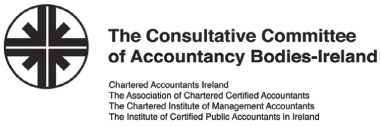CCAB-I Response to new discussion draft on BEPS Action 7 (Prevent the Artificial Avoidance of PE Status)

47 – 49 Pearse Street, Dublin 2, IRELAND
Ms Marlies de Ruiter
Head, Tax Treaties, Transfer Pricing and Financial Transactions Division, OECD/CTPA
Organisation for Economic Cooperation and Development
2 rue André-Pascal
75775, Paris Cedex 16
France
by email to taxtreaties@oecd.org
11 June 2015
Dear Ms de Ruiter
Re: New discussion draft on BEPS Action 7 (Prevent the Artificial Avoidance of PE Status)
We welcome the opportunity to comment on the above document issued on 15 May 2015.
Artificial avoidance of PE status though Commissionaire arrangements
The revised discussion draft proposes that Option B is the most suitable response to BEPS concerns regarding the use of commissionaire arrangements as anti-avoidance vehicles given the four options set out in the original discussion document.
The inclusion of the term “negotiates the material elements of contracts” should deal with our concerns that preliminary or interim discussions of the terms of a contract should not trigger a PE in the State where such discussions occur. However, clarity on what broadly constitutes the “material elements of contracts” would be helpful.
Our members have observed that various layers of negotiations can occur before the material elements of the final contract are reached. Therefore, the inclusion of the word “final” before “contract” in paragraph 5 and in the commentary would put the matter beyond any doubt.
Artificial avoidance of PE status through the specific activity exemption
The revised discussion draft adopts Option E out of the four options put forward by the original consultation document to address concerns surrounding the availability of an exemption from PE status for the activities listed at subparagraphs (a) to (d) of Article 5(4) of the OECD Model Treaty.
According to the revised draft, these activities will only be exempt if they are of a preparatory or auxiliary character. We still consider that this amendment will disproportionately impact smaller countries due to the creation of multiple PEs for businesses with low value activities operating on the periphery of larger markets. Clarity for businesses is critical to making business decisions. Therefore the proposed measure will also increase uncertainty and disputes particularly for smaller economies stemming from the use of the “preparatory” or “auxiliary” tests.
As per our submission on 8 January 2015, we recommend that Option E should be prefaced with a statement in paragraph 4 of Article 5 that the specific activities in subparagraphs (a) to (d) in article 5(4) continue to be eligible for exemption unless those activities are core to the business activities of the enterprise. We suggest the use of the following wording to achieve this “form a significant and essential part of the enterprise as a whole”.
Profit attribution
We note that follow-up work will be carried out in September 2015 on the attribution of profits issues related to Action 7. We reiterate our concerns that changes to the definition of PE will unfairly impact economies with small domestic markets and any work carried out on this matter by the OECD must not facilitate challenges by larger nations to the taxing rights of smaller nations. There should be appropriate stakeholder input for the purposes of developing a fair approach to profit attribution.
You may wish to note that this response is from a representative body. The Consultative Committee of Accountancy Bodies – Ireland is the representative committee for the main accountancy bodies in Ireland. It comprises Chartered Accountants Ireland, the Association of Chartered Certified Accountants, the Institute of Certified Public Accountants in Ireland, and the Chartered Institute of Management Accountants, which represent a combined membership of some 40,000 accountants. Brian Keegan, Director of Taxation at Chartered Accountants Ireland (brian.keegan@charteredaccountants.ie, +353 1 6377 347) may be contacted if any further details in relation to this letter are required.
Yours faithfully

Paul Dillon, Chairman, CCAB-I Tax Committee
Source: Chartered Accountants Ireland. www.charteredaccountants.ie
